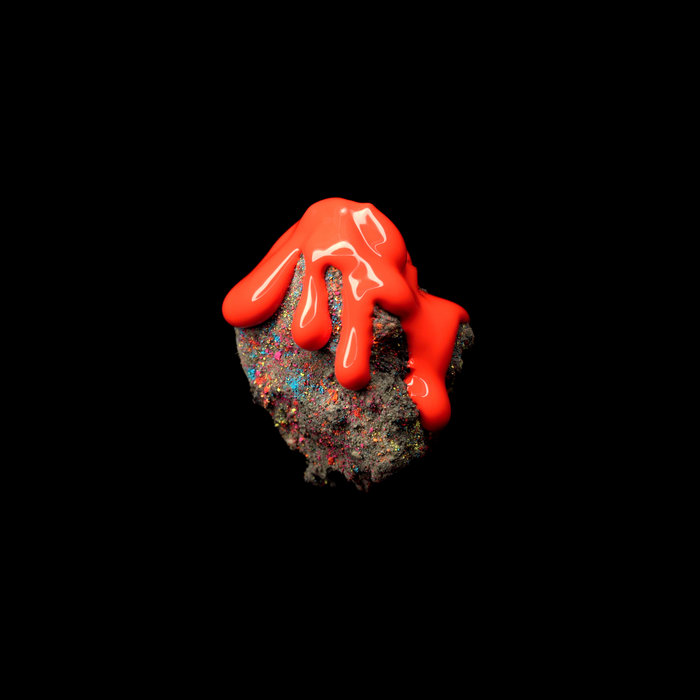“Another damn’d, thick, square book! Always scribble, scribble, scribble! Eh, Mr Gibbon?” Thus spoke William Henry, Duke of Gloucester to the historian Edward Gibbon. Many aesthetes will still remember Gibbon and his monstrous work, Decline and Fall of the Roman Empire. A small band of fanatical genealogists may still remember the Duke, though a use for him has, after more than two centuries, finally come in providing me with the introduction to this review.
First listens to SOIL, the second album from Rubber Oh (aka Sam Grant of Pigs x7), may conjure up the uneasy contemplation of the time needed to digest it. Like the Duke, you can approach the record like a solid object: a damn’d, thick, square one at that. A self-contained fortress of music, even, which you have to breach. Some tracks, like the stygian closer, ‘We’ll Get By’, are still holding out and like Blind Jack of Knaresborough, steadily plotting their way through the neural toll booths of my brain. I’ll also wager that ‘Soil Divine’ is the most obstinate, ‘Geordie-on-his-allotment-planting-his-prize leeks’ instrumental anyone will come across this year. Each hollow thump of the beat could be the thrust and twist of the spade into the clag. Or the pile driven into the ground at the local works. The unremitting mid-tone drones that envelop the workings of this track are as enmeshing as a wire fence and as slow as treacle dropping off a spoon.
Shy bairns get nowt, though, and repeated listens reveal a magical album; a secret treasure box. The process of reveal is like holding a piece of polished coal to the sky and watching the light refract and glisten. The first three tracks, ‘The Well’, ‘Circles’, and ‘Bloodlust’ are the singles, and presented as such in the running order fire out a salvo of industrious noise and intent. They share a tough exterior, almost as if they’ve been pebble-dashed. The vocals are focussed and not too high falutin’ and the bass ploughs through all the tracks like a tractor in a damp field. ‘Circles’, featuring Rozi Plain, is a lovely song if a mysterious one; Plain adding a puckish note to the stormy weather the music makes. ‘Bloodlust’ is more concentrated, with less elements to dilute its message, and as such more gnomic and difficult to work out what it’s about. But the track certainly gives the impression that you don’t want to mess with it if you bump into it down the backs.
The opener ‘The Well’ reveals itself over time to be the album’s clarion call. Its tempo – in its nature and composition – are very reminiscent of the ecstatic pilgrim plods found on a Richard Dawson album. There’s a satisfying thud to things: a sense of treading the earth, a sense of order when mapping out a plot of land. The melody line the choir sings, too, has a Dawson-esque feel – the committed delivery could be straight outta nonconformist chapel though a line like “We fertilise our soil” is the sort of messaging that could also come from . Subsequent devilry at the mixing desk – undulations in the vocals augmented with wibbly synth noises – add to the weekend pagan feel.
More sonic and psychic undulations are provided by ‘Lift’, which is a fascinating track. Wyrd trio Voka Gentle turn up to help stir the pot in Sam Grant’s story. Someone’s offering someone a lift? I think so. It’s intensely psychedelic, a gothic story set on an A road, I think. And the Moody Blues mellotron-style synths lower over everything like a pregnant rain cloud. ‘Poor Anna’ is a great heavy metal nursery rhyme with its pithy, slightly accusatory vocals: the bass adds a Fat White rumble to kick it down the street. ‘The Mapmaker’, with its prancing strings, initially sounds like it once escaped from a detective film starring Margaret Rutherford. Things quickly congeal and coagulate into a post-glam sing-song, held together by some (sonic) monster truck glue.
SOIL sometimes feels like Grant has built a charming soundtrack to his Minecraft account. But the record wouldn’t have the same allure without other artist contributions. We can point to those forementioned. And the slow ‘Belly of the Beast’ – featuring another Tyneside dweller, the cellist Ceitidh Mac – shows itself to be an oddly soulful creature, the bubbling synths here are the sort of thing one would hear in a 70s sci-fi programme or a schools TV report on water management. ‘A Morning After’ is possibly the most melodious track on the album, in that it’s a clear melody sung in a comprehensible fashion. The lightness and room singer Me Lost Me (aka Jayne Dent) brings to the rumbling music really lifts it and soothes us in preparation for the end track ‘We’ll Get By’, which, despite the initial recording of happy children’s voices, is a slightly morose way to bring matters to a close.
We end on another dispute, and quote: this time from a 1998 edition of the London Review of Books. Initially I wanted to cement this album’s relentless and formidable industry by quoting an aesthetic whinny about war, namely; “my dear, the noise, and the people”; one I thought ascribed to Normam Hartnell, the late Queen, and Queen Mother’s couturier. You would have thought that Google would solve all our problems when checking sources, but no. A search led me to a correspondent (from Durham of all places), writing to the LRB, who was sure that “Ernest Thesiger, having taken his embroidery to work on in the trenches, summed up the Somme experience to a friend as ‘my dear, the noise, and the people.’”. Regardless of the quote’s provenance, the image of taking your embroidery into the trenches serves as an apt metaphor for SOIL.


